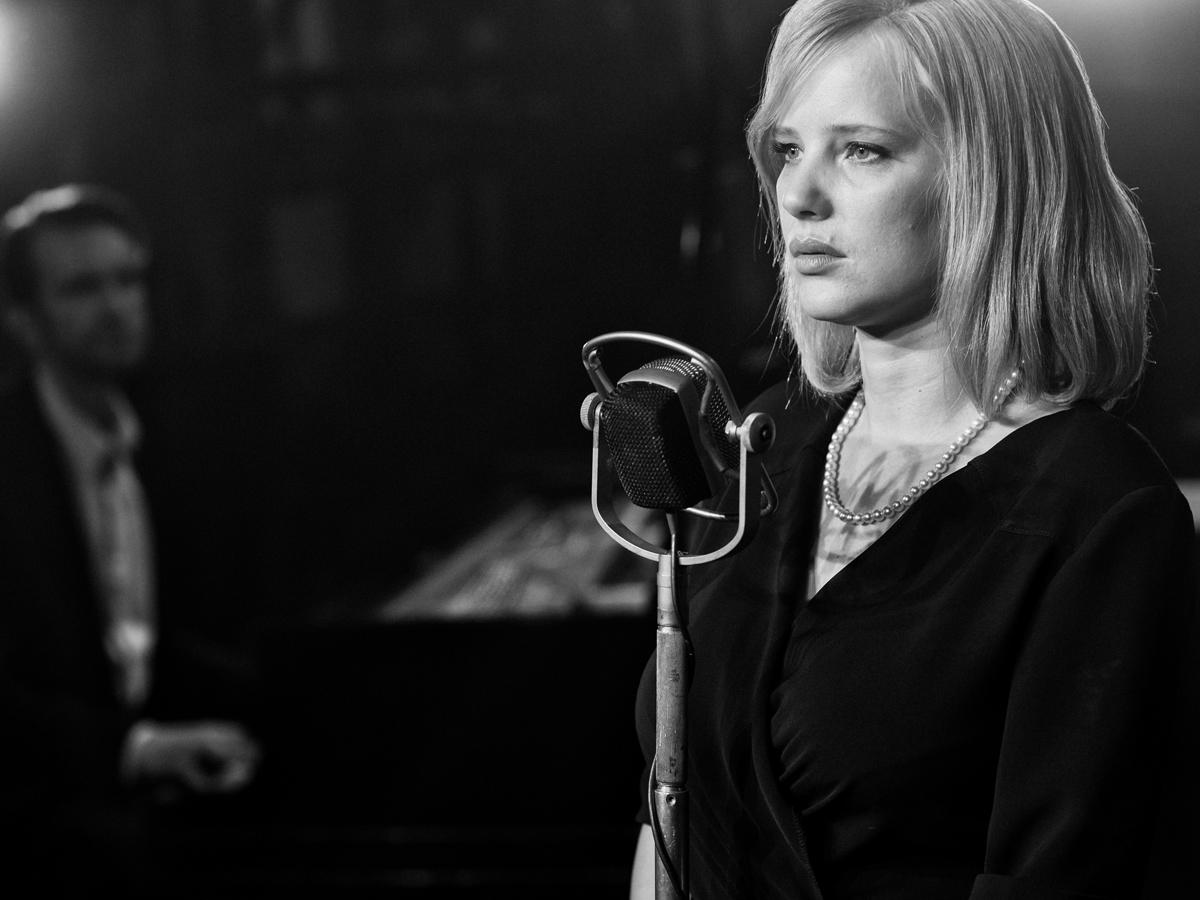by Chris Feil

Pawel Pawlikowski’s Cold War serves us romance as allegory, a love story that represents a falling out with and tidal pull towards national identity. The film’s lovers, Zuzanna and Wiktor, meet in rural post-war Poland, beginning an affair that spans years and countries, their inevitable frustrated split and reuniting not unlike a national identity continually struggling to redefine itself. But crucially, Pawlikowski positions them in a musical world, one where genres and tastes charge forward like the evolving, indifferent world around his torn protagonists.
The film’s musical transition begins in the most identifiably Polish context. Tomasz Kot’s Wiktor partly runs and teaches a large, newly recruited group of young folk singers, a touring troupe rooted in rural music tradition that Pawlikowski presents without fuss or event. There is a rudimentary purity to his first wailing countryfolk, a clarity unfettered by anything outside its humble history. Joanna Kulig’s Zuzanna (or Zula) and Wiktor’s love, though not uncomplicated by student/pupil dynamics (not to mention her hazy past), has the swooning perfection of first spark.
But this identity is forfeited when the troupe is overtaken by government forces, enlisting them to serve as a propaganda unit. Their choral sound seems familiar enough to how they began, but eschewing more fablistic tunes for the demands of lionizing Stalin brings a more foreboding sonic connotation. As the tension within Pawlikowski’s images suggest in conjunction with the creepily pristine sound, a punishing schism looks and sounds inevitable. Meanwhile, Zula and Wiktor are beginning to show signs of their own split.
Escape comes and with it the sound of jazz. Zula has taken up as a lounge singer, the wholly different sound she now performs representing her history overcome, a newly founded identity that is all her own. She performs at L’Eclipse, her own newfound musical and political place it’s own fleeting lunar illusion. Wiktor meanwhile is somewhat adrift once freed from the political consequence of the overrun troupe. Their new circumstance could blow away with a breeze as delicate as Zula whisper vocals.
And that they do, and somewhat of their own making. “Two Hearts, Four Eyes”, a weary love ballad that Zula performs with ease to suggest it is her signature song, mutates to her curse when she later sings it in forlorn French. In finally sacrificing her national identity, her artistic one loses something essential. Wiktor, meanwhile, remains mere orchestrator - their harmony once again lost as their circumstance feels all the more volatile.
The displacement only continues, and at a faster musical clip. As we see Zula lose herself to alcohol, we also witness the rise of American rock and roll, suggesting a bold new world moving forward without them. Later, after another reuniting between the lovers, we see her drunkenly performing a brash, borderline offensive Mexican drag - her global and artistic displacement furthered to the point of unrecognizable buffoonery. Finally, as their place becomes too irreconcilable together or apart, they come to their end back where they began. Now the sound, the essence, the music that defines them is silence.
All Soundtracking installments can be found here!